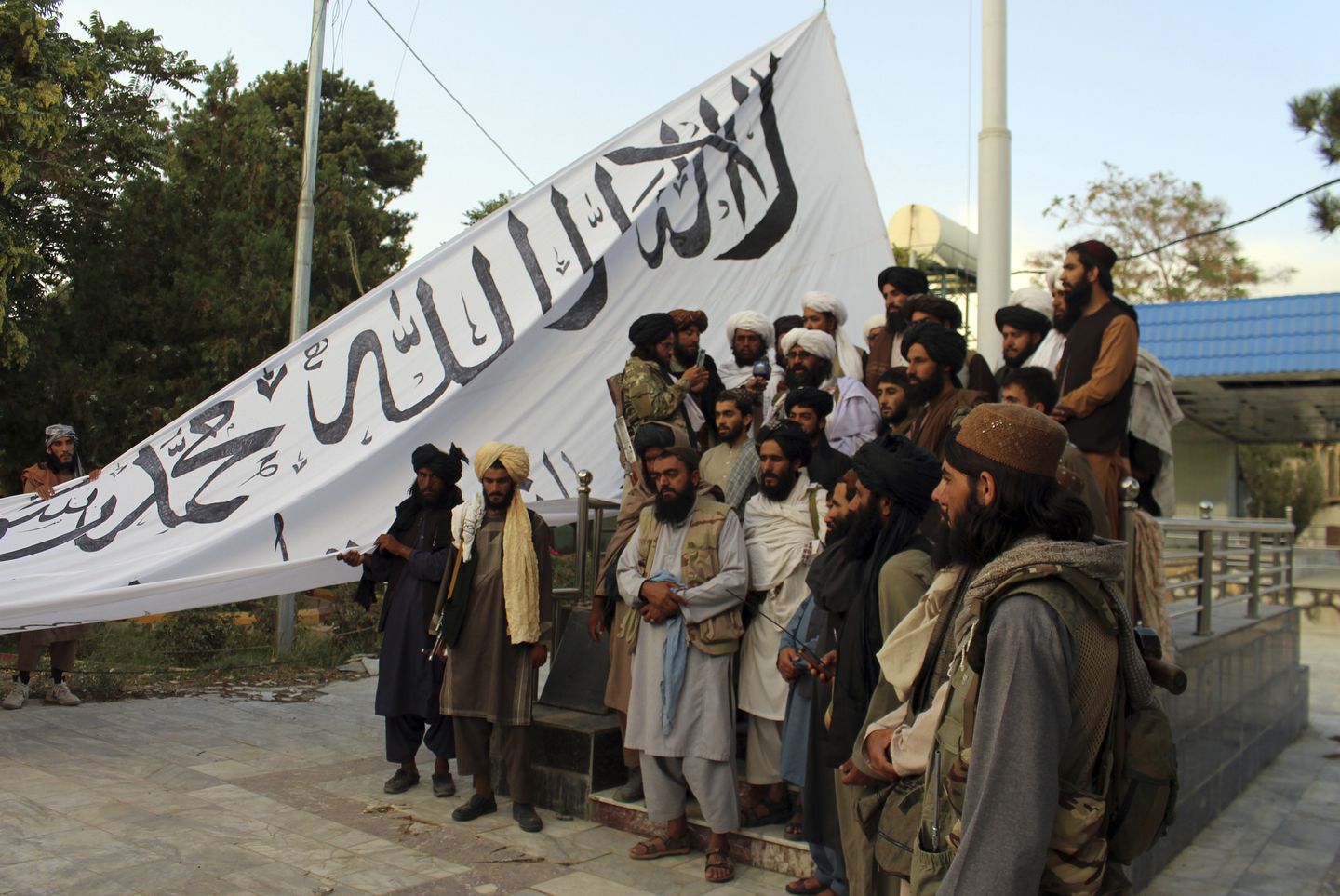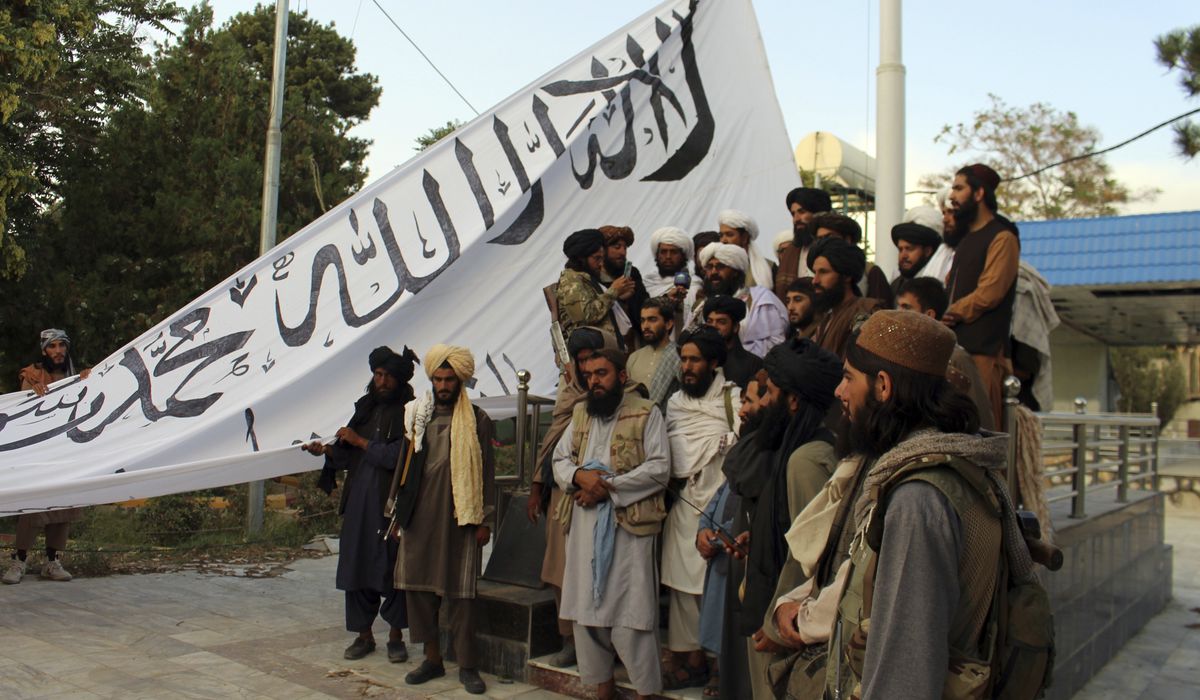

The rapid collapse of the Afghan government left American officials increasingly concerned about the potential for a rise in terrorist threats against the United States.
Gen. Mark Milley, the chairman of the Joint Chiefs of Staff, told senators on a briefing call Sunday that U.S. officials are expected to alter their earlier assessments about the pace of terrorist groups reconstituting in Afghanistan, a person familiar with the matter told The Associated Press.
In June, the Pentagon’s top leaders said an extremist group like al-Qaida may be able to regenerate in Afghanistan and pose a threat to the U.S. homeland within two years of the American military’s withdrawal from the country.
But based on the evolving situation, officials now believe terror groups like al-Qaida may be able to grow much faster than expected, according to the person, who had direct knowledge of the briefing was not authorized to discuss the details of the call publicly and spoke to the AP on condition of anonymity.
The Pentagon was sending an additional 1,000 troops directly into Kabul to assist evacuating U.S. personnel, bringing the total number of U.S. troops in Afghanistan to about 6,000, a U.S. defense official said. The official spoke to the AP on condition of anonymity to discuss a deployment decision not yet announced by the Pentagon.
The Biden administration officials on the call with senators – among them were Milley, Secretary of State Antony Blinken and Defense Secretary Lloyd Austin – said U.S. intelligence agencies are working on forming a new timeline based on the evolving threats, the person familiar with the matter said.
The intelligence community must create a new threat assessment amid widespread criticism of its evaluation of how quickly the Afghan government would fall. The Taliban entered Kabul less than a week after reports that military intelligence assessed that the capital could be surrounded in 30 days.
Current and former officials on Sunday pushed back against criticism of what was widely seen as an intelligence failure. One senior intelligence official said that “a rapid Taliban takeover was always a possibility,” adding: “As the Taliban advanced, they ultimately met with little resistance. We have always been clear-eyed that this was possible, and tactical conditions on the ground can often evolve quickly.” The official was not authorized to discuss the matter publicly and spoke on condition of anonymity.
But President Joe Biden didn’t suggest such an outcome at a July 8 news conference, when he said “the likelihood there’s going to be the Taliban overrunning everything and owning the whole country is highly unlikely. ”
The pullback of U.S. military forces across Afghanistan over the last several months has sharply limited intelligence agencies that work side by side with troops. Without that military presence, spies would be severely limited in what they can collect about the morale of Afghan troops or support for the Taliban.
“If they leave, which they did, that means we leave as well,” said Marc Polymeropoulos, who held several roles related to Afghanistan during a 26-year career in the CIA. “And that certainly affects our intelligence gathering footprint.”
Connecticut Sen. Chris Murphy, a Democratic member of the Senate Foreign Relations Committee who has backed the Biden administration’s strategy and been in close touch with the White House, said in an interview that “the speed is a surprise” but would not characterize the situation as an intelligence failure. He said it has long been known that Afghanistan would fall to the Taliban if the United States pulled out.
“The Taliban has lots of reasons to honor their agreement with the United States and keep al-Qaida at bay. And our mission now is to put ourselves in a position where we can monitor and verify that that commitment,” he said.
During the briefing with members of the House, Republican leader Kevin McCarthy became furious after the administration officials would not confirm that President Ashraf Ghani had left the country, according to a person who participated in the meeting.
“Why are we doing this now?” McCarthy asked.
Ghani flew out of the country as the Taliban insurgents closed in on Sunday and posted on Facebook that he had chosen to leave the country to avert bloodshed in the capital. He did not say where he had gone.
House Speaker Nancy Pelosi asked the original question about Ghani’s whereabouts, and also asked about the status of American evacuations.
Rep. Michael Waltz, a Florida Republican and Green Beret who served in Afghanistan, sharply criticized the briefing for lawmakers as “a regurgitation of the president’s statement” from Saturday.
Waltz said Austin blamed the Afghan forces’ lack of will to fight, while Blinken cited the deadline set by former President Donald Trump’s administration for an American withdrawal.
“There was no discussion of a path forward except some vague reassurances that they’ll protect the homeland,” Waltz said.
